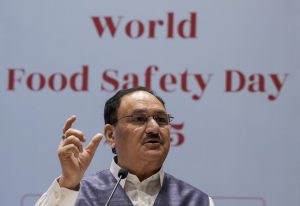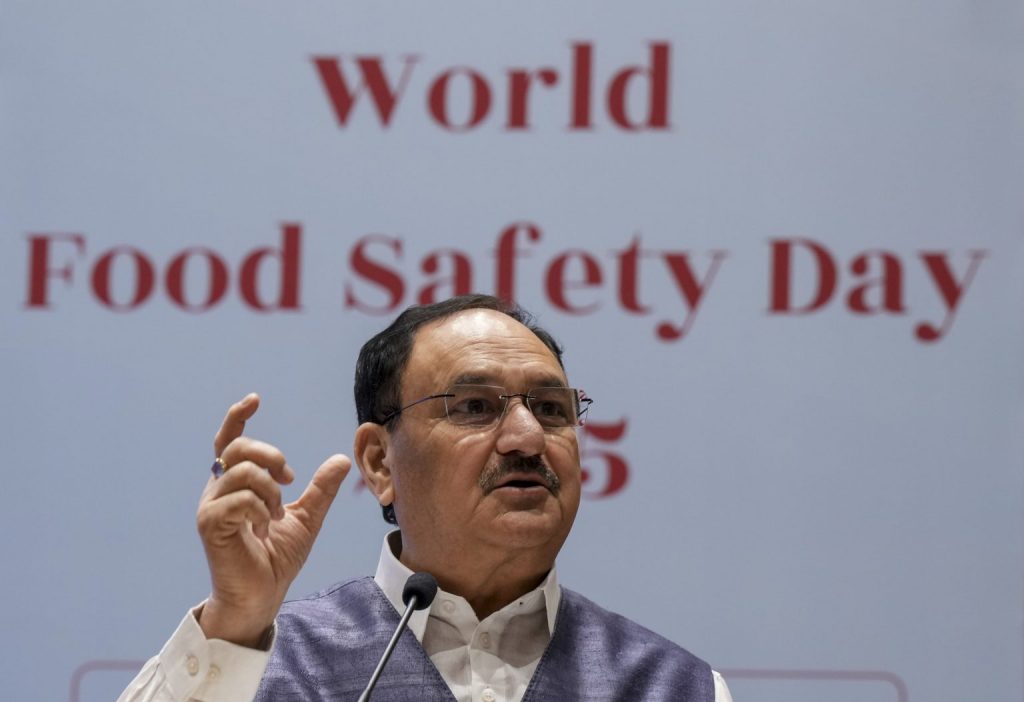Bengaluru, Jun 7: On this World Food Safety Day, every Indian must make a vow to reduce salt intake, processed food as well as 10 per cent of oil consumption, said Jagat Prakash Nadda, Union Minister for Health and Family Welfare on Saturday.
According to him, it is our collective responsibility to spread awareness about eating the right food.
Nadda was addressing an event organised to celebrate World Food Safety Day by the Union Ministry of Health and Family Welfare at National Institute of Mental Health and Neuro Sciences (NIMHANS) in Bengaluru. World Food Safety Day is celebrated on June 7 of every year.
“We should take the clarion call given by our Prime Minister Narendra Modi and see to it that at least in our own homes, we are able to reduce 10 per cent of oil consumption and salt consumption. This is the most necessary part. We also have to see to it that processed foods are reduced to the maximum,” said Nadda.
He also said to remain healthy and to eat right, India must revisit its traditional food practices.
“Our traditional food includes many types of preparations with millets. We have to revive this tradition,” he added.
Nadda said change is possible only if it is a continuous process.
“By talking about food safety habits only on World Food Safety Day is not going to work. It will only work if we make it a part of our life and if we make it a habit,” he added.
Nadda also said health consciousness and the Eat Right Movement are imperative as obesity is spreading fast in India.
“India’s diabetes study by ICMR says that from 2008 to 2020, the obesity in urban India has increased by 39.6 per cent and in rural areas, it has increased by 23.1% per cent. It is also projected that by 2050, 1/3 of the population will be obese,” said Nadda, adding that time to act is now.
During the event, Nadda also released a booklet called ‘Eat Right India’.
Sanjay Kumar, Secretary of Department of School Education and Literacy, who addressed the gathering via video conferencing, explained how the science of eating right has become a part of National Council for Education, Research and Training’s curriculum.


